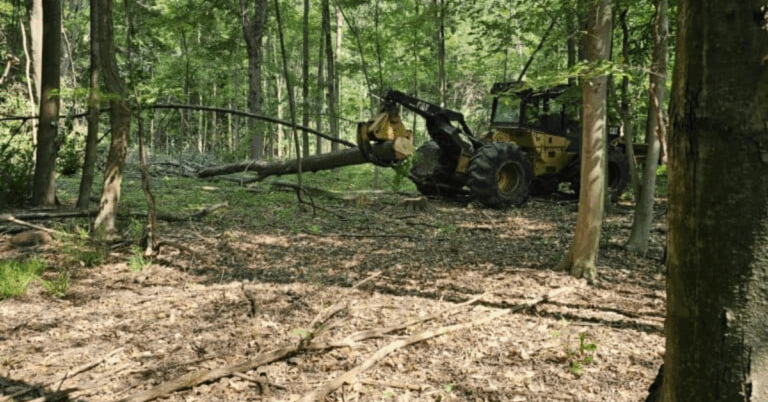Avoid These 5 Common Mistakes on Your Singapore PR Application
Securing a Singapore Permanent Resident Application is a milestone for many foreign professionals, families, and students who wish to make Singapore their long-term home. Yet, despite meticulous planning, applicants often stumble on pitfalls that delay approval or even lead to outright rejection. In this article, we explore five frequent missteps—and how to steer clear of them—so your Singapore Permanent Resident Application proceeds as smoothly as possible.
1. Incomplete or Inaccurate Documentation
One of the chief reasons for processing delays or rejection of a Singapore Permanent Resident Application is incomplete paperwork. The Immigration & Checkpoints Authority (ICA) requires precise, verifiable documentation to assess eligibility.
-
Missing certificates or translations: If your original documents—such as birth certificates, marriage certificates, or educational transcripts—aren’t in English, you must provide notarized translations. Failing to include these translations can stall your Singapore Permanent Resident Application.
-
Expired passports: Ensure your passport is valid for at least six months beyond the application date. An expiring passport can result in your Singapore Permanent Resident Application being held up until you renew.
-
Inconsistent personal details: Double-check that names, dates of birth, and other personal details match exactly across every document. Any discrepancy can trigger ICA to question the authenticity of your Singapore Permanent Resident Application.
Tip: Create a checklist with all required documents—and tick off each only after verification—to avoid last-minute scrambling.
2. Overlooking the Importance of a Strong Supporting Statement
Your supporting statement is your opportunity to explain why you deserve Singapore Permanent Resident status. Yet, many applicants treat this narrative as an afterthought.
-
Generic statements: A bland description of “I love Singapore” won’t differentiate you. A compelling supporting statement should outline your professional contributions, community involvement, and long-term commitment to the country.
-
Lack of personalization: Tailor your statement to reflect your unique circumstances. For example, if you volunteer at a local charity, explain how this strengthens social cohesion—reinforcing the goals of your Singapore Permanent Resident Application.
-
Poor structure: Present your statement in clear, concise paragraphs. Start with an introduction of your background, followed by specific achievements, and conclude with your future aspirations in Singapore. This organization enhances the readability of your Singapore Permanent Resident Application.
Tip: Draft your supporting statement early and solicit feedback from peers or mentors familiar with local expectations.
3. Ignoring Financial Requirements and Stability
Financial stability is a key consideration for any Singapore Permanent Resident Application. ICA wants assurance that you can support yourself and your dependents without undue strain on public resources.
-
Insufficient bank statements: Applicants often submit minimal bank balances or lack a history of stable savings. Provide at least six months of bank statements showing consistent deposits from your employer or business. This bolsters your Singapore Permanent Resident Application by demonstrating financial prudence.
-
Lack of investment or property proof: If you own property or have made significant local investments, include proof of ownership. These details strengthen your overall profile and the viability of your Singapore Permanent Resident Application.
-
Unclear employment history: Gaps in employment or abrupt job changes can raise questions. Present salary slips, employment contracts, and employer letters to establish continuous, reliable income supporting your Singapore Permanent Resident Application.
Tip: Work with a financial advisor to organize and present your monetary records clearly.
4. Applying Prematurely Without Sufficient Local Integration
While eligibility can start as early as two years after arriving on an Employment Pass, rushing into a Singapore Permanent Resident Application too soon can backfire if you haven’t established roots.
-
Minimal community engagement: Active participation in local events, volunteer groups, or professional associations shows commitment. Without this integration, authorities may question the sincerity of your Singapore Permanent Resident Application.
-
Lack of local references: A strong PR application often includes recommendation letters from Singapore-based employers, colleagues, or community leaders. Reach out to credible local figures to endorse your Singapore Permanent Resident Application.
-
Superficial cultural understanding: Demonstrating cultural awareness—such as proficiency in English or another local language and familiarity with Singaporean customs—reinforces your dedication to life here. Neglecting this aspect can weaken your Singapore Permanent Resident Application.
Tip: Enroll in community courses or join local clubs well before applying to accumulate authentic engagement credentials.
5. Neglecting Follow-Up and Application Tracking
Submitting your Singapore Permanent Resident Application is only the beginning. Many applicants underestimate the importance of diligent follow-up.
-
Missing emails from ICA: Check your inbox (and spam folder) regularly for communications from ICA. Prompt replies to requests for additional information can make or break your Singapore Permanent Resident Application.
-
No clear record of submission date: Note down the exact date you submitted the application online. If processing exceeds the typical 6–8 months, you can then formally inquire with ICA about delays affecting your Singapore Permanent Resident Application.
-
Ignoring status updates: Use the e-PR portal to track your application. Regular status checks show you what stage your Singapore Permanent Resident Application is at and whether any action is required.
Tip: Set calendar reminders to review your e-PR portal monthly and to respond immediately to any ICA queries.
Crafting a Flawless Singapore Permanent Resident Application: Best Practices
Beyond avoiding these five pitfalls, there are strategies to elevate your application profile:
-
Engage a credible consultancy sparingly: While professional PR consultants can guide you, remember that the authenticity of your Singapore Permanent Resident Application rests on your own merits.
-
Update your resume for local norms: A CV formatted in Singaporean style—with clear sections and concise achievements—makes your Singapore Permanent Resident Application more compelling.
-
Maintain professional certifications: Certifications from recognized bodies (e.g., CPA, PMP) add weight to your skills and support your Singapore Permanent Resident Application.
-
Show long-term financial planning: Evidence of retirement savings or education plans for your children underscores your lasting commitment to Singapore and enhances your Singapore Permanent Resident Application.
-
Prepare for the PR interview: While not always required, some applications include an interview. Familiarize yourself with common questions about your contributions, goals, and personal plans post-PR approval to strengthen your Singapore Permanent Resident Application.
Conclusion
A successful Singapore Permanent Resident Application demands more than merely meeting baseline requirements. By ensuring complete documentation, crafting a persuasive supporting statement, demonstrating financial stability, integrating locally, and actively tracking your submission, you maximize your chances of approval. Avoid these five common mistakes— and you’ll be well on your way to unlocking the benefits and security of Singapore Permanent Resident status.
Embark on your Singapore Permanent Resident Application journey with confidence, clarity, and the foresight to anticipate challenges. With careful preparation and a genuine commitment to your new home, you’ll transform a complex process into a smooth pathway toward becoming a valued member of Singapore’s vibrant community.







